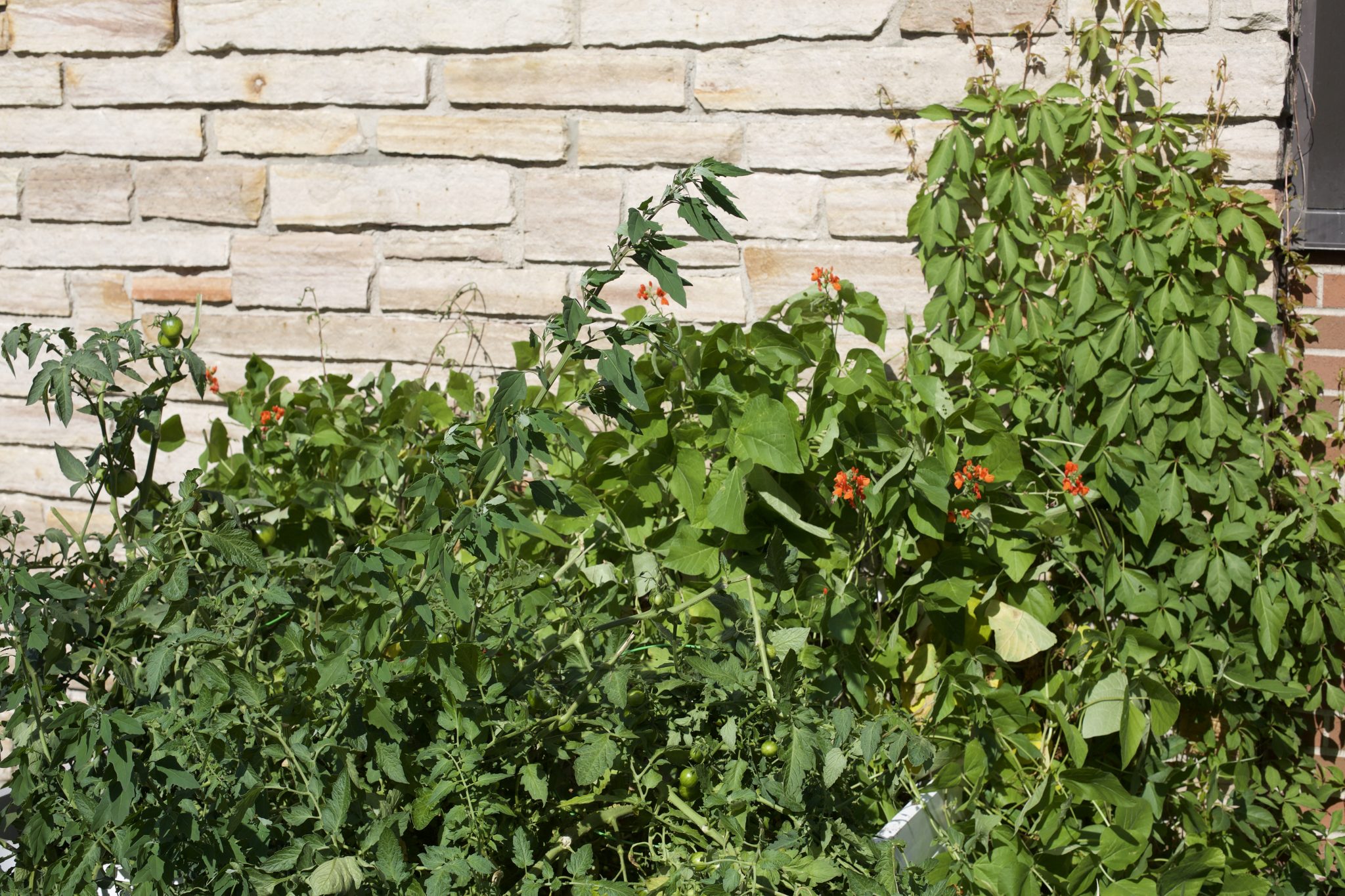Food Justice Garden provides produce for students in need

Martin Luther University College joined forces with Laurier Students’ Public Interest Research Group (LSPIRG) this summer to promote food justice on campus.
The Food Justice Garden is located at Martin Luther University College facing Albert Street. It has raised garden beds and is home to over 23 different types of vegetables and herbs that provide fresh produce to students in need.
The data on the annual Food for Hawks report shows that over 47% of students at Wilfrid Laurier University suffer from food insecurity, the majority of whom are Indigenous.
“It’s mind-blowing to see the discrepancy in food access within our own campus environment,” Mikayla Wall, head coordinator of the Food Justice Garden, said.
Volunteers and community members from Climate Justice Laurier, LSPIRG and Laurier work together to take care of the garden. Through growing, cultivating and harvesting produce, they are able to aid Indigenous students impacted by food insecurity.
“Laurier is situated on Indigenous lands, and we need to be respectful and acknowledge that by ensuring we raise the voice of the territories of the people that this university sits on. It’s very important, and so is food justice,” Ann Marie Beals, a volunteer at Climate Justice Laurier, said.
As Laurier sits on the land of the Anishnaabe and Haudenosaunee Peoples, one of the initiatives of the garden is “growing ultra-local food to donate back to Indigenous communities through the Luther Weekly Distro,” Walls said.
The Weekly Distro at Martin Luther University College distributes fresh groceries such as dairy, bread, fruit, vegetables, pantry items, hygiene products, cleaning products and school supplies.
Additionally, volunteers at the garden plant vegetables and herbs that celebrate Indigenous culture and farming.
“We wanted to pay homage to the Indigenous community we had started to donate this for, so we planted a crop with the three sisters in it. Despite the corn not doing so well, we wanted to focus on the squash and beans because they were great producers,” Wall said.
The garden also highlights land, reconciliation, culture and literacy injustices and their relationship to food insecurity within the Indigenous community.
“It’s so sad that human beings can use land however they see fit even when it does not really fit with some peoples’ worldviews––Indigenous peoples’ worldviews. The land is not something for humans just to use, but we also need to protect and restore the land because it’s the sustenance for everyone,” Beals expressed.
There are two main goals of the Food Justice Garden: recognizing and educating people about Indigenous land and cultivating food.
“We’ve been shut out of the conversation for too long and really should be at the forefront. The justice part of this initiative is bringing attention to Indigenous knowledge and Indigenous ways of being, so we can protect Mother Earth for our own survival,” Beals said
The second goal of this initiative involves helping “ameliorate the food insecurity that students are facing on campus,” they said.
Although the Food Justice Garden is commemorated for helping Indigenous students in need of nutritional food, it does not completely alleviate food insecurity.
“It’s not the solution to the problem––it’s really more of a band-aid. We need to live in a society where everyone is cared for. It shouldn’t be dependent on students going to other students to have healthy food,” Beals said.
The Food Justice Garden may be a small project within the larger scope of issues pertaining to
food insecurity for Indigenous students across Canada; however, it is a powerful demonstration of community and activism at Laurier that has made a positive impact in students’ lives.
“I think it makes everyone much more grateful for the ability to just walk into the grocery store and buy food, if you have that ability. It’s also made people realize how important access to healthy and fresh food is,” Wall said.

